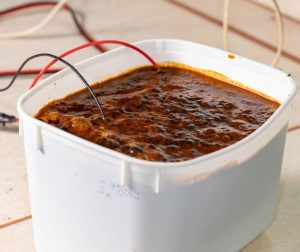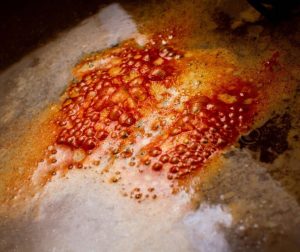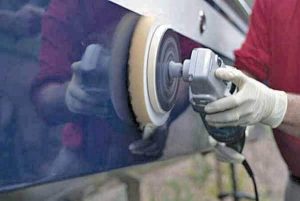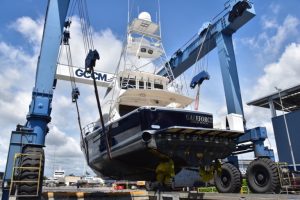Story courtesy of GCCM
Boating enthusiasts cherish their time on the water, but the joy of boating comes with the responsibility of maintaining the vessel to ensure its longevity and performance. One of the most dreaded issues for boat owners is electrolysis, or electrolytic corrosion, which can cause severe damage to crucial components like propellers. This blog will discuss the causes of electrolysis, its impact on your boat, and essential steps to prevent it, ensuring your boat remains in optimal condition.

Understanding Electrolysis
Electrolysis, also known as electrolytic corrosion, is a process where stray electrical currents cause metal components on your boat to corrode. This type of corrosion can lead to pitting, pinking, and discolouration of metal parts, particularly the propeller, shafts, and struts. If left unchecked, electrolysis can cause these components to disintegrate over time, resulting in costly repairs or replacements.

Causes of Electrolysis
Electrolysis occurs when stray electrical currents, originating from three primary sources, travel through seawater and your boat’s metal parts:
- Boat’s Electrical Components: Poor installation or maintenance of your boat’s wiring can generate stray currents.
- Other Boats: Nearby boats in busy marinas can also contribute to electrolysis if they have faulty electrical systems.
- Shore Power Connection: Improper ground leads from shore power can introduce stray currents into your boat.
As the current seeks to earth itself, it travels through seawater (a good conductor) and your boat’s metal parts, causing metal to be stripped off and dissolved into the seawater. This process results in corrosion, compromising the efficiency and safety of your vessel.

Preventing Electrolysis
Preventing electrolysis involves taking proactive measures to protect your boat’s metal components. Here are four crucial steps to prevent or fix such corrosion:
- Maintain Sacrificial Anodes
Sacrificial anodes are made from materials like zinc, designed to corrode instead of your boat’s metal parts. This method, known as cathodic protection, helps protect your propellers, shafts, and struts from electrolytic corrosion. Regularly inspect and replace anodes before they are completely depleted to ensure they continue to provide protection. It is also important to install the correct type of anode for your boat to avoid overprotection, which can be just as harmful as under protection.
- Regularly Inspect Boat Wiring
Faulty wiring on your vessel can significantly contribute to electrolysis. Regular inspections and maintenance of your boat’s electrical system are essential to prevent stray currents from causing corrosion. Keep in mind that even if your boat’s wiring is in perfect condition, nearby boats with faulty electrical systems can still affect your vessel, making it crucial to remain vigilant.
- Install a Galvanic Isolator
A galvanic isolator is a vital component of your boat’s electrical system. It blocks low-voltage currents that enter your boat via the shore power earth wire, preventing these currents from causing electrolysis. Installing a galvanic isolator adds an extra layer of protection against electrolytic corrosion, safeguarding your boat’s metal parts.
- Apply Protective Coatings
Protective coatings act as a shield for your boat’s metal parts, reducing the risk of corrosion. Modern foul-release coatings are non-toxic and create surfaces too slippery for marine life like barnacles to attach, offering an environmentally friendly alternative to traditional marine antifouling paints. These coatings help passivate the metal, limiting the ability of propellers and other components to conduct stray currents.

The Role of Professional Maintenance
While these preventative measures are crucial, consulting professionals with experience in electrolysis prevention can make a significant difference. GCCM offer comprehensive services to help boat owners protect their vessels from electrolysis and other forms of corrosion.
GCCM business trades’ Expertise
The onsite skilled technicians and craftsmen specialise in boat maintenance, including electrolysis prevention. GCCM’s state-of-the-art facilities and advanced equipment ensure precise and efficient maintenance work. By leveraging GCCM marine trades’ expertise, boat owners can implement effective preventive measures and promptly address any existing corrosion issues.
Plan for Preventive Maintenance
Preventive maintenance programs include scheduled inspections, routine servicing, and detailed maintenance plans. Stay on top of your vessel’s maintenance needs, ensuring that potential issues are addressed before they escalate.
Conclusion
Electrolysis is a common and potentially costly issue for boat owners, but with proper maintenance and preventive measures, its impact can be minimised. Regularly maintaining sacrificial anodes, inspecting boat wiring, installing galvanic isolators, and applying protective coatings are essential steps in preventing electrolytic corrosion. Consulting professionals, such as those at GCCM, can provide expert guidance and services to ensure your boat remains in optimal condition, saving you time and money in the long run. By taking these proactive measures, you can enjoy a worry-free boating experience and protect your valuable investment. Contact GCCM to book your vessel in to check for electrolysis or any other enquiries.
Learn more here about how GCCM can help you maintain your boat in optimal condition, ensuring longevity and peak performance for your adventures on the water.







